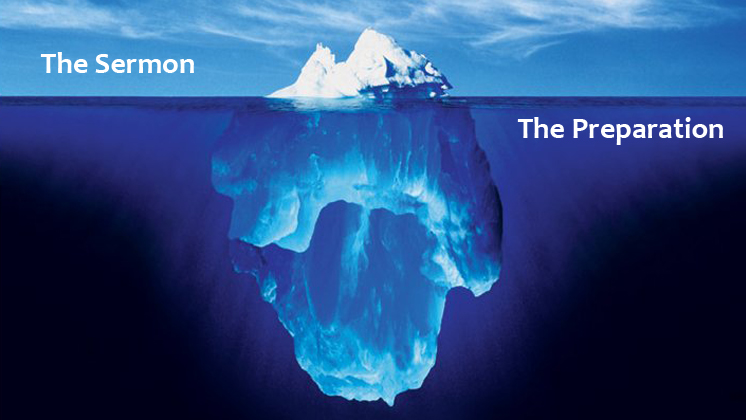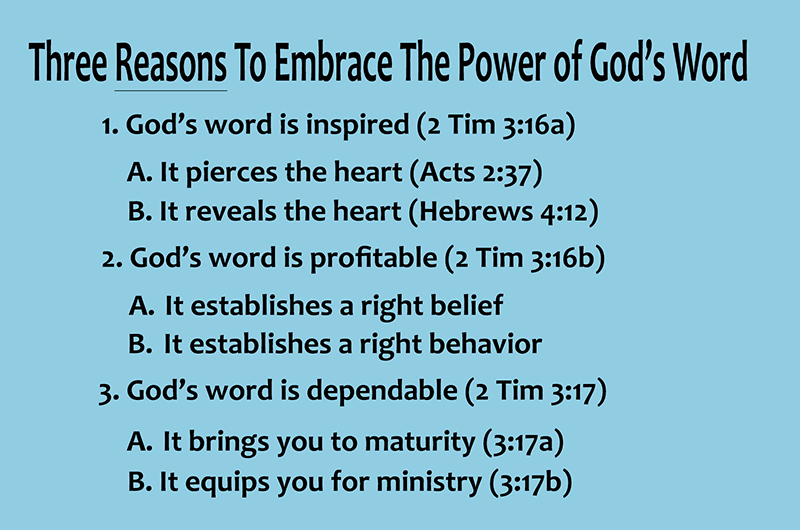How to prepare to deliver a sermon? In this article, I want to look at how the preacher prepares to deliver a sermon. In other words, I want to look at how the preacher bridges the gap between the study and the pulpit in order to preach God’s word with passion and purpose.

How to Prepare to Deliver a Sermon?
I am assuming that the preacher has written his sermon manuscript. I usually have my sermon manuscript finished by Friday afternoon. The sermon manuscript is my road-map for the Sunday sermon. The sermon manuscript involves a sermon outline with an introduction and conclusion. I never write a sermon manuscript until I have developed the sermon outline (see sermon outline below). Once I have developed the sermon outline, I add sermon content and sermon illustrations. When I finished with writing sermon content, I then write the introduction and conclusion.

The sermon manuscript is usually my preaching manuscript. I finish the sermon manuscript on Friday afternoon. However, my preparation to deliver the sermon begins on Friday night. To bridge the gap between the study and the pulpit, I follow three intentional steps. These three steps have become disciplines that allow me to preach God’s word with passion and purpose. How to prepare to deliver a sermon is an area of sermon preparation that I take very seriously.
1. I take time to refresh the mind
Friday night is my night to relax and refresh my mind. I generally don’t think about the messages for Sunday. I generally spent time with family or I may watch a sport that interests me at the time.
On Saturday I like to do things around the house like mowing the lawn or odd jobs in the garden. I find this relaxing and refreshing. I don’t think too much about the sermon until Saturday night.
2. I take time to review the manuscript
I like to take time to review the manuscript between 7pm to 9pm on Saturday night. The reason I write a sermon manuscript is because it forces me to internalize the Scriptural passage that I am going to preach.
The sermon manuscript is the result of a grammatical, an exegetical and a homiletical outline of the passage of Scripture that I am going to preach. In other words, I have done several hours of study and I know the passage of Scripture inside out.
However, I like to review the sermon manuscript on Saturday night by marking it up in preparation for preaching. I use a blue pen and highlighters to mark up the sermon. I go through the manuscript with a fine-tooth comb so that I very familiar with the flow and sequence of the sermon. By doing this, I have the freedom to preach the sermon without relying too much on the sermon manuscript.
3. I take time to pray through the manuscript
On Sunday morning, I take time to pray through the manuscript. I spent about one hour going through the manuscript prayerfully making sure that my mind is clear and concise concerning the message.
When I walk into the pulpit on Sunday morning and afternoon, I want to be totally available to God to preach his word with passion and purpose. I want to use my voice and mannerism to bring the message alive so that the congregation can experience the power of God’s word at work in their lives.
The better I prepare between the study and the pulpit; the greater freedom I have in the pulpit to deliver the word of God. I have been preaching weekly sermons for nearly thirty years and I find these three steps absolutely necessary if I am going to preach God’s word with passion and purpose.
Resources for How to Prepare to Deliver a Sermon
Braga James, 1981, How To Prepare Bible Messages, Multnomah Press, Portland, Oregon.
Chapell Bryan, 1994, Christ-Centered Preaching: Redeeming the Expository Sermon, Baker Book House, Grand Rapids, Michigan.
Lowry Eugene L, 2001, The Homiletical Plot: The Sermon as Narrative Art Form, Westiminster John Know Press, Louisville, Kentucky.
Koller Charles W, 1995, How To Preach Without Notes, Baker Book House, Grand Rapids Michigan.
McQuilkin Robertson, 2009, Understanding and Applying the Bible, Moody Publishers, Chicago.
Robinson Haddon W, 2001, Biblical Preaching: The Development and Delivery of Expository Messages Baker Academic, Grand Rapids Michigan.